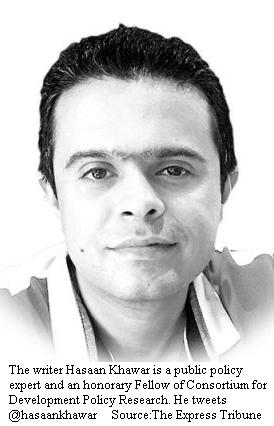|
||||||||
|
|
|
2019-12-10 ArtNo.46639
◆CPEC and the US-China tug of war
 【Islamabad】In the fourth week of last month (November), two important developments kept the spotlight focused on the China-Pakistan Economic Corridor (CPEC) again. The first was US Assistant Secretary of State Alice Wells' adverse remarks about CPEC and the second was the appointment of Lt Gen (retd) Asim Bajwa as chairman of the newly-created CPEC Authority. Ms Wells' statement is a part of Washington's recently evolving aggressive stance towards the Belt and Road Initiative (BRI) as it intensifies its efforts to shoo away the world from easier capital flows from China. This hardline US stance has come in the wake of the US-China trade war and stifling relations between the two superpowers. In a blog post, Benn Steil and Benjamin Della Rocca highlighted that Trump's tariffs have resulted in a surplus trade balance with China for many countries, with African and Latin American BRI partners being the biggest winners. But the US-China decoupling has hardly benefitted Pakistan, which has been battling with its own challenges. Since Imran Khan came to power, CPEC has hit a snag owing to a balance of payment crisis, fiscal crunch and prevalent bureaucratic indecision. Resultantly the new CPEC investments dried up while the old ones suffered from slow progress.  However, the establishment of the CPEC Authority and renewed conversations in the 9th CPEC Joint Cooperation Committee (JCC) meeting rekindled the prospects for CPEC's revival. Many also believe that with a former general in charge of the autonomous CPEC Authority, the government may be able to overcome bureaucratic inaction widely attributed to the National Accountability Bureau (NAB)'s accountability drive. But notwithstanding Pakistan's shifting-gear approach towards CPEC, the increasing polarisation between Washington and Beijing is going to pose difficulties for Islamabad which is already struggling to fulfil IMF's conditions and making its case to get out of the Financial Action Task Force (FATF) grey list. The promised FDI and trade prospects from the US are no substitute for readily available infrastructure financing from China or vice versa. This means that Pakistan will have to draw a balancing act. But more importantly, it will also need to negotiate better terms for future CPEC projects, ideally circumventing the need for sovereign government guarantees and ensuring manageable repayment options. Or else the government will soon find itself in a very tight spot. 【News source】 CPEC and the US-China tug of war ○One world:The aim of SEAnews Your Comments / UnsubscribeTweet to @TwitterDev SEAnews MessengerSEAnewsFacebookSEAnews eBookstoreSEAnews world circulation |
|
[Your Comments / Unsubscribe]/[您的意见/退订]/[ご意見/配信停止]
Please do not directly reply to the e-mail address which is used for delivering the newsletter. 请别用递送新闻的邮件地址而直接回信。 メールをお届けした送信専用アドレスには返信しないで下さい。 |